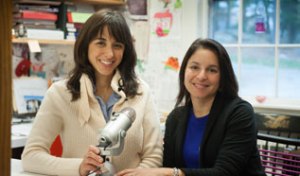In recent months, I have observed an increased use of social media (Instagram and Snapchat have skyrocketed!) Some kids are talking with me about connecting with other kids that they don’t know to offer (and seek) support when they are going through difficult times. Another trend I’ve heard about is setting up Q&A pages (such as Ask.fm) where peers can write in anonymous questions or thoughts. And finally, of course, there is the “standard” use in which kids are posting pictures and comments about their day-to-day lives.
The important thing to realize in this new wave of computer usage is that generally, kids are searching for connection with other kids. But they are not yet at a developmental age to be able to fully consider the range of potential consequences of their online activity. There are times when kids get in over their heads, hearing about the psychological issues of other kids. It is hard enough to know what to do when you are worried about a close friend at school (seek help from a trusted adult!) But when suddenly faced with a worrisome situation of an online acquaintance who may live several states away, this can be a very heavy burden to manage. There are also times when kids inadvertently cause hurt feelings or make others feel excluded by posting images of private get-togethers. Or, in the case of setting up Q&A pages, they may inadvertently get their OWN feelings hurt by inviting anonymous criticism. Another concern that is difficult for teenagers to grasp is that anything they put out on the internet then becomes public information. Forever. They are not quite yet able to fully understand the potential implications of that. Finally, and perhaps most worrisome, kids at this age are very trusting; if they perceive that they have made a “friend” online, it may not seem like a bad idea for them to give out personal information. A student recently told me that a friend she had made online “told me that she’s not a creepy 49-year-old man.”
The early teenage years are a time when kids’ primary psychological task is to seek independence from their parents (yes, all those hours spent alone in the bedroom mean your kid is right on target!) It is typical for kids to be doing some things privately that their parents are not fully aware of, and online activity seems to be today’s most likely vehicle for this. While I do not encourage snooping or policing of your child’s online activity (just like reading your child’s diary, it may give you a wealth of information but ultimately is counterproductive as it erodes trust and will most likely lead to pushing the behavior underground, lying, or increased tension at home) I DO encourage open, honest communication with your children about what they are doing online. Ask them about their usage and talk openly about your concerns but also make sure to LISTEN to them and resist the urge to lecture. Remember that kids are most likely to make good decisions when they feel trusted.
I also encourage families to talk about setting limits on computer use so that the social media sites won’t be such a distraction during afternoon and evening hours. While most kids will openly balk at limit setting, they often express relief to me that their parents have removed the temptation for large chunks of time during the week. Some ideas include having a timer on the wireless router so that at a certain hour kids no longer have access to the internet, changing passwords on sites such as Facebook during the academic week so that kids are only able to use it on the weekends, “turning in” smart phones until homework is completed each day, and (I ALWAYS recommend this one) having all electronic devices charge overnight in the parents’ bedroom (they can get “parked” there after 9 p.m., for example.)
Just as in every aspect of growing up, kids need to have some freedom but the best kind of freedom is within the confines of some safe and comfortable limits that have been set up by parents!
If you would like to discuss this or any issue further, please do not hesitate to contact me at Jen_Hamilton@nobles.edu or (781)320-7073. As always I welcome your thoughts and comments.


